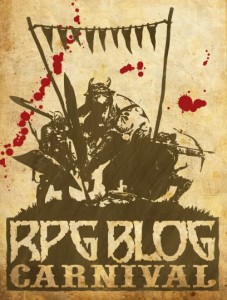 A good NPC can make a campaign. A bad one, well bad NPCs are usually forgotten fairly quickly. With this in mind it’s in a DMs best interest to ensure that his key NPCs have detailed stories to accompany them. By providing these NPCs with quirks, strengths and weaknesses it provides the PC with more reason to interact and develop a relationship. This in turn makes it easier for the DM to move the story along, twining the PCs concerns with those of the NPC. Of course this takes a lot of work and as the PCs progress new NPCs are required, with new stories and reason to motivate the PCs.
A good NPC can make a campaign. A bad one, well bad NPCs are usually forgotten fairly quickly. With this in mind it’s in a DMs best interest to ensure that his key NPCs have detailed stories to accompany them. By providing these NPCs with quirks, strengths and weaknesses it provides the PC with more reason to interact and develop a relationship. This in turn makes it easier for the DM to move the story along, twining the PCs concerns with those of the NPC. Of course this takes a lot of work and as the PCs progress new NPCs are required, with new stories and reason to motivate the PCs.
April’s RPG Blog Carnival focus on NPCs. One way to build a very effective NPC is to use a PC that has for one reason or another retired.